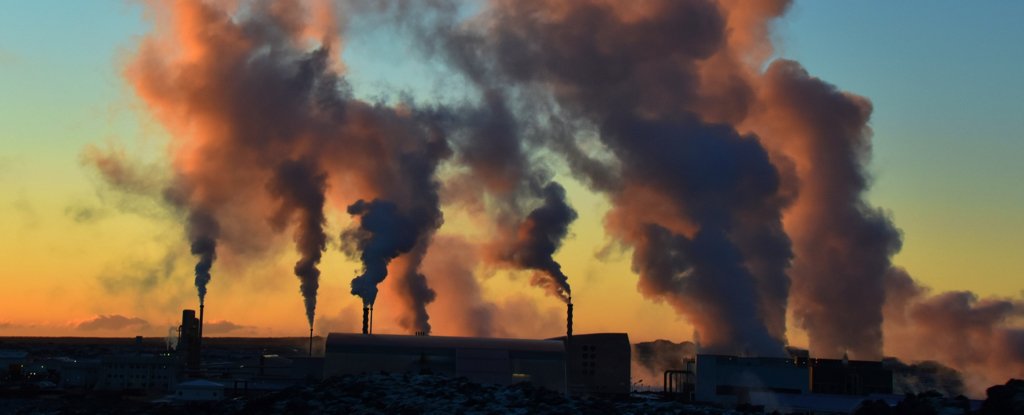
“We believe that the damage done to the ocean in the last 20 years is somewhere between 30 per cent and 50 per cent, which is a frightening figure. And this damage carries on at very high speed—to the Indian Ocean, to the Red Sea, to the Mediterranean, to the Atlantic…Everywhere around the world the coral reefs are disappearing at a very great rate, to such an extent we are not sure we will see anything like what we know now.”
Jacques Cousteau wrote these words in 1971, for an New York Times op-ed titled “Our Oceans Are Dying.”
No one listened.
No one cared.
No one did anything. So now, as Cousteau warned us would happen, our oceans are finished.
More than 90% of coral reefs on Earth will be dead in the next 25 years. What if we did…something? No. Reef extinction is irreversible, even if we were to stop emitting greenhouse gases right this second.
96% of all ocean life, fish big and small and everything that swims, will be gone as well. There’s nothing we can do to save them.
The cause is obvious and well-known: rapid and extreme global warming caused by humans, pollution and overhunting. We don’t have to look far to see that the ocean is boiling: at this writing, water temperatures off the Florida Keys have reached 97°. Caribbean waters are normally 82° all year around. The surprise isn’t that 96% of the ocean life is doomed, it’s that 4% may not be.
It will be soon.
Ironically, all this heat is about to start a new Ice Age. A new study concludes that there is a 95% chance that the Atlantic Meridional Overturning Circulation (AMOC), a system of ocean currents including the Gulf Stream that carry warm water from the tropics into the North Atlantic will collapse between 2025 and 2095 because it is being blocked by cold water dumped into the northern part of the ocean from melting glaciers and ice caps. Without the AMOC, as soon as two years from now and no later than 70, Europe will be buried under sheets of ice, like in the disaster movie “The Day After Tomorrow.”
Bummer. I liked Europe.
Several years ago, flying west from Istanbul to New York, my plane’s pilot announced that he and his colleagues could see that the Gulf Stream was breaking down—and had been for some time. As a result, we’d arrive earlier than scheduled. He explained why this was scary. He urged us to write our Congressmen. I wonder if anyone on board did. I didn’t. What would have been the point? Congress doesn’t care or help or act.
In a natural-disaster movie like “2012” or “Armageddon,” the world’s political and business leaders gather in a blue-lit situation room chock full of computer screens displaying cool infographics, some in business attire, others in exotic garb, all wearing somber holy-crap expressions as the camera pans around. Someone, either the U.N. Secretary General or the U.S. President (these are American movies), calls on nations to drop everything, set aside their differences and dedicate all their resources and attention to the existential crisis of climate change, the worst threat—by far—that humanity has ever faced.
Because this is a film, where politicians are sometimes evil but never total idiots, everyone nods in agreement, rolls up their sleeves and gets to work to save humanity’s ass.
(In the European version of this film, we all die in the end after waging a valiant and noble struggle.)
Actual politics, however, are not as logical or commonsensical as movies. Young people like the activist Greta Thunberg are, quite reasonably, appalled at the mess they’ve inherited thanks to decades of dithering: “Pretty much nothing has been done since the global emissions of CO2 has not reduced,” Thunberg told a 2020 climate conference. “[I]f you see it from that aspect, what has concretely been done, if you see it from a bigger perspective, basically nothing.”
I ask my smart friends why we’re so stupid. “It’s all about money,” they usually say, more or less. “Business and rich individuals profit from the current system.” But that doesn’t make sense. There’ll be no economy if we’re all dead. You can’t enjoy your wealth if you’re dead. Being dead, all of us as a result of environmental catastrophe, is a distinct possibility—for our grandchildren, our children, even for precious Us.
And yet—my smart friends are right. Capitalist idiots are so moronically capitalist that they’d rather be rich and dead than middle class and alive. The rest of us, the non- and anti-capitalist people who neither benefit from ecocide nor approve of it, are letting the greedy lunatics take us with them. We are, precisely because we believed Jacques Cousteau and did nothing to act or to react or to resist, even dumber than they are.
Darwin wins again.
(Ted Rall (Twitter: @tedrall), the political cartoonist, columnist and graphic novelist, co-hosts the left-vs-right DMZ America podcast with fellow cartoonist Scott Stantis. You can support Ted’s hard-hitting political cartoons and columns and see his work first by sponsoring his work on Patreon.)

 The political left, center and right do share something in common in today’s polarized America: we’re all in denial. The first step in 12-step programs begins with admitting that you have a problem for a reason: you can’t tackle a challenge whose existence you refuse to acknowledge. “From a psychoanalytical viewpoint, denial is a pathological, ineffective defense mechanism,” doctors M.S. Vos and J.C. de Haes observed in their 2006
The political left, center and right do share something in common in today’s polarized America: we’re all in denial. The first step in 12-step programs begins with admitting that you have a problem for a reason: you can’t tackle a challenge whose existence you refuse to acknowledge. “From a psychoanalytical viewpoint, denial is a pathological, ineffective defense mechanism,” doctors M.S. Vos and J.C. de Haes observed in their 2006